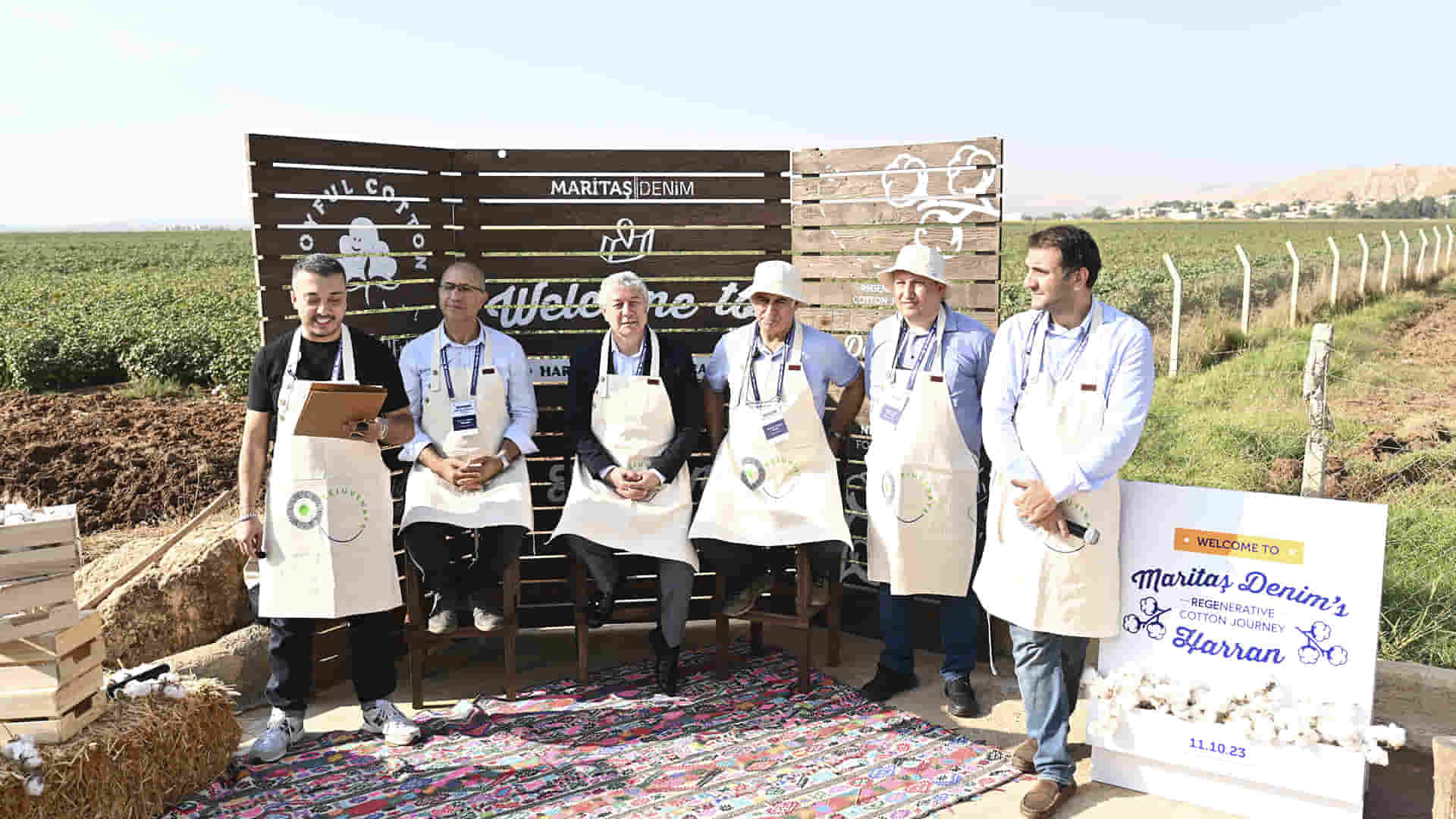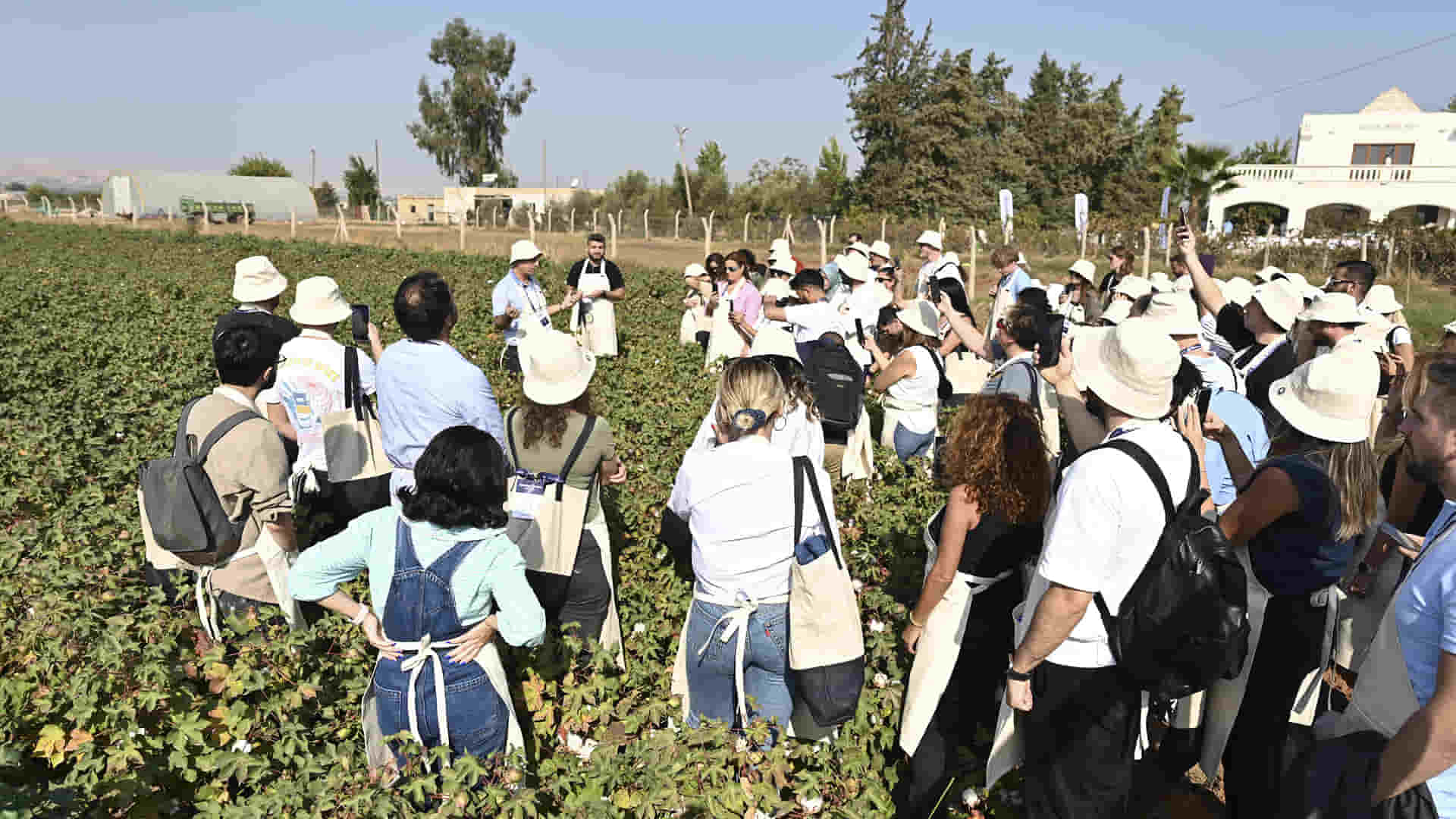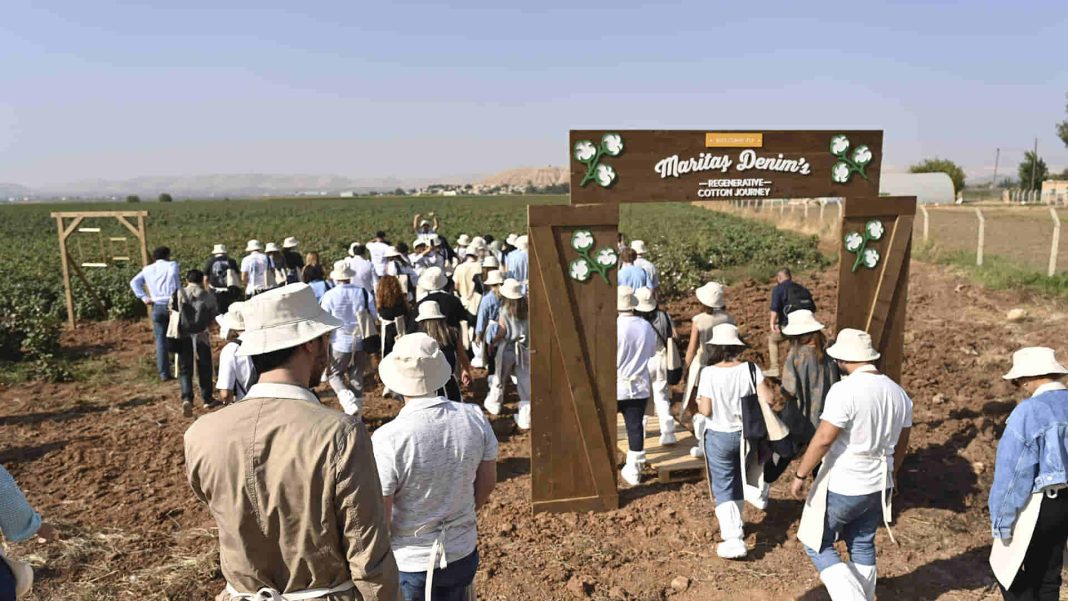Maritaş Denim, manufacturing fully integrated production from yarn to weaving, harvested regenerative cotton for the first time in Türkiye with TÜBITAK supported university and industry cooperation. The first harvest event of cotton, whose seeds were planted in May 2023, was held in Harran Plain. With the tag line of “Harvesting in Harran: Maritaş Denim’s Regenerative Cotton Journey”, the first event emphasized that regenerative agriculture is an efficient method for farmers. The harvest is aimed to raise awareness on cotton production and popularize regenerative agriculture practices. The 24-month project also supports local farmers through contract farming practices
Maritaş Denim Assistant General Manager Fatih Kesim stated that they want to contribute to agriculture and industry with this project adding that they support regenerative agriculture with the vision of sustainability. Kesim elaborated the project as follows: “We believe that the regenerative cotton production we have started in the Harran Plain is a guide for generations that can return the soil and nature to its essence, produce without pollution and live in harmony with nature. We are proud to be pioneering a movement that will create not only local but also global impact. We would like to extend our endless thanks to the authorities of Harran University, Gaziantep University and Şanlıurfa Chamber of Agricultural Engineers for guiding us in our project, which we have implemented to redefine denim and transform our approach to cotton in the perspective of sustainability in the industry.”

The harvest is expected to yield enough raw material to meet the demand of 500 thousand meters
The project, carried out in cooperation with Harran University, Faculty of Agriculture, Department of Field Crops and Gaziantep University, Department of Textile Engineering, plans to gradually work on 500 decares of production area and 10 decares of pilot project area in the first phase. From the first harvest, it is aimed to obtain raw material that can meet the demand of approximately 500 thousand meters for a 100% content fabric of average weight.
Maritaş Denim, exporting fabrics to 340 brands, maintains its preparations to develop the most recent as well as effective practices in raw material procurement and make them applicable in a wider perspective with this project. Contributing to the project for reducing carbon emissions and supporting regenerative agriculture, the company prioritizes improving the soil, increasing crop productivity and water retention capacity compared to monoculture agriculture.

Underlining that Şanlıurfa accounts for 45% of Türkiye’s cotton production and 75% of the Harran Plain is planted with cotton, the Head of Harran University Faculty of Agriculture, Department of Field Crops Prof. Dr. Osman Çopur pointed out that continuous cotton cultivation will cause deep ploughing, formation of soil stones, increase in diseases, weeds and deterioration in the microbiology of the soil. Çopur highlighted the importance of the project by saying: “Research shows that more than 100% of the carbon emissions caused by industrial agriculture can be absorbed in a period of 3 years with the spread of restorative agricultural practices. Our work, carried out together with Maritaş Denim’s social responsibility and sustainable agriculture approach, started in November 2022 with the planting of winter intermediate product lentils. The soil enriched in nitrogen also reduced cotton production costs. Our aim is to create a sustainable cotton supply chain for the textile industry and leave a healthy soil for future generations.”
